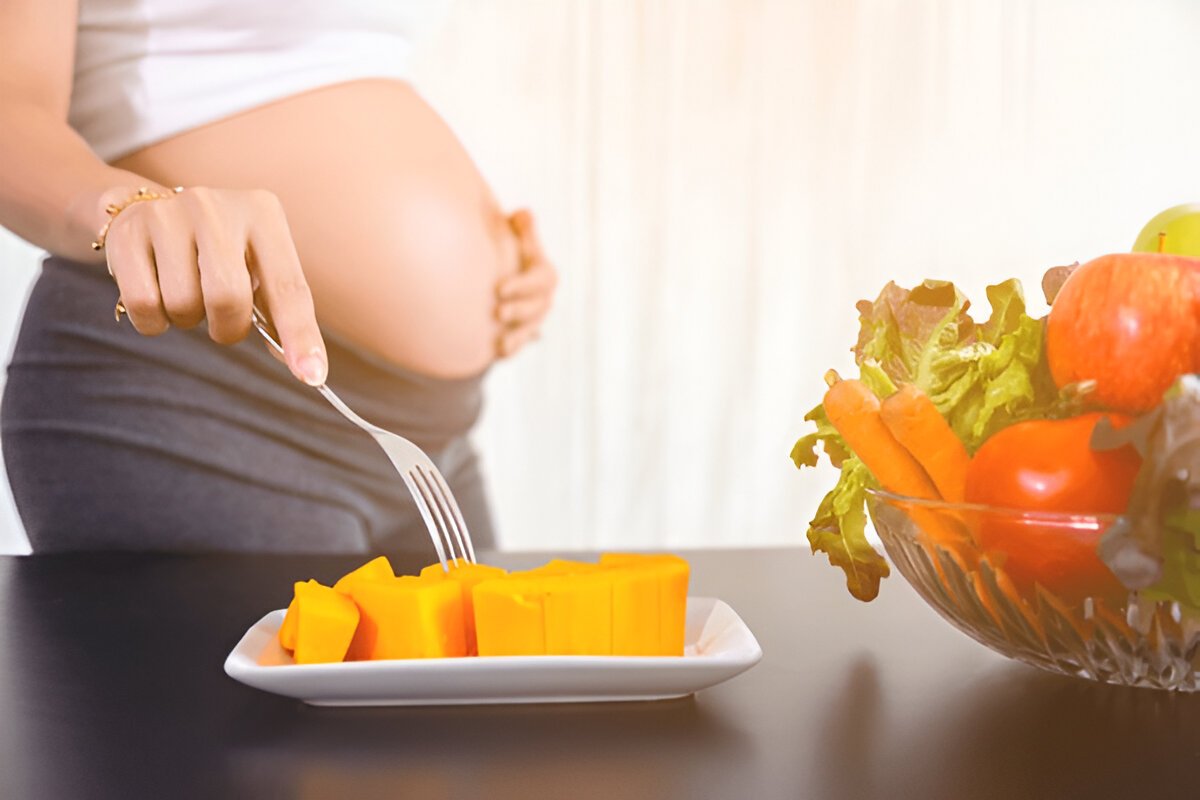Pregnancy can be an exciting and joyful time, but it can also be a very anxiety-provoking experience when it comes to food. Whether it’s online research, family members willing to share their opinion, or just old wives tales. All of this creates a confusing storm of foods that you’re either “allowed” to eat or not. It’s in the fine print that it’s like every other food is suddenly “not allowed”, turning the matter of food and nutrition into a complete burden. This article will cut through the confusion and help you establish fact versus fiction. We will start by examining the science of common food myths during pregnancy so you can make confident and informed decisions for yourself, and your baby.
The Great Papaya Debate: Unripe vs Ripe

One of the more hotly debated fruits on pregnancy forums is papaya, and here a little science goes a long way. The concern over papaya is misplaced, though not entirely unfounded.
The concern isn’t over ripe papaya, but under-ripe or semi-ripe papaya. The under-ripe, hard fruit is greenish and contains larger amounts of latex. The latex contains two primary ingredients: papain and chymopapain. When taken in larger doses, these enzymes have the ability to mimic oxytocin and prostaglandins that can cause uterine contractions and, to some extent, they can be harmful to the membranes that surround and protect the fetus. Thus we have the element of scientific truth behind the misguided paranoia.
However, the foregoing is very different from fully ripe papaya. A ripe papaya, which is orange or yellow in color, and soft to the touch, contains substantially less latex (negligible amounts). It is full of nutrients good for you and the baby such as vitamins C and A, folic acid, and dietary fiber.
For a scientific breakdown of the risks, especially in the first trimester, read our in-depth analysis debunking these myths in pregnancy:
So, what’s the final verdict on this fruit? We cover all angles here:
The Pineapple Predicament: Understanding Bromelain

Another fruit that’s suffered from a bad reputation is pineapple. The myths in pregnancy with pineapple is that pineapple can induce early labor or miscarriages. Usually, the fear of pineapple comes from the enzyme bromelain.
While bromelain is theorized as a digestive aid that helps break down proteins and softens the cervix (which is an indication that labor may start) it is available in concentrated form as a digestive aid in tablet or capsule form.
The key word is concentrated. A normal, single serving of fresh pineapple contains an extremely small amount of bromelain. In order to get enough bromelain to affect your cervix, you’d need to eat an exorbitant amount of fresh pineapple (between 7-10 whole pineapples), which is completely impractical. You’re much more likely to get a sore mouth and indigestion before you are able to eat that much pineapple. Eating a reasonable slice or reasonable cup of pineapple is safe for you.
Worried about eating this tropical delight? Get the facts here:
General Guidelines for Fruit Safety in Pregnancy
Instead of being apprehensive about certain fruits, it is much easier to protect yourself by focusing on ways to keep fruit safe to eat. The best tip is to practices equally to all fruits not just the fruits previously mentioned:
Wash It
Always wash raw fruit under running water before peeling, cutting, or eating. This will remove surface dirt, leftover pesticides, and harmful bacteria that are posed during pregnancy.
Pre-Cut / Pre-Served Fruit
Be cautious of eating pre-cut fruit salads, or melon salads, if they have been sitting at room temperature, even at a picnic, or pre-cut serving platters from the store. These products can be a breeding ground for potentially harmful bacteria if they have not been managed correctly. Opt for whole fruit and prepare the fruit before you eat it.
Eat Fruit in Moderation
Eating a well-balanced diet is an important part to ensure a healthy pregnancy. Fruit is great, just do not eat too much of anything! If you are going to eat fruit, eat a variety of different colored fruit to widen the range of vitamins and minerals you eat.
Conclusion: Eat with Confidence, Not Fear
While taking some precautions during pregnancy is smart (excessive unripe papaya comes to mind) most common fears of fruit that arise during pregnancy that you will come across are simply myths during pregnancy that do not have sufficient scientific data to support. In reality, the vast majority of fruits are not just safe, but incredibly beneficial for you and your baby.
By understanding the “why” of these warnings, you can put your fears aside. Wash your fruit, eat a healthy balanced diet, and enjoy the nutrient-dense, delicious foods nature provides. It’s time to empower yourself with knowledge, and not worry while eating. Check out Kinzy Club Blogs for more such helpful articles.
Also do check our Kinzy App to create fun memorable stories through our advanced Ai assistant with your kids.





